Are Essential Oils Moisturizing
Essential oils have been gaining popularity in the world of skincare for their numerous benefits, particularly when it comes to moisturizing the skin.
From their moisturizing properties to their anti-inflammatory, antimicrobial, and antioxidant properties, essential oils offer a natural and effective way to hydrate and nourish your skin.
We will explore how essential oils work for moisturizing, which essential oils are best for this purpose, how to use them, and any potential risks to be aware of.
Discover the wonders of essential oils for skin hydration!
Key Takeaways:
What are Essential Oils?
Essential oils are concentrated liquids extracted from plants that capture the plant’s fragrance and beneficial properties.
During the extraction process, plants are carefully selected based on their aromatic and therapeutic qualities. Common methods used to extract essential oils include distillation, solvent extraction, and cold pressing. Steam distillation is one of the most common techniques, where steam is passed through the plant material, releasing the essential oils which are then condensed back into liquid form.
These oils are widely used in skincare products for their natural healing and rejuvenating properties. From moisturizing creams to serums, essential oils such as lavender, tea tree, and rosemary are known for their antiseptic, anti-inflammatory, and nourishing effects on the skin.
In aromatherapy, essential oils are used to promote relaxation, boost mood, and alleviate stress. The aromatic compounds interact with the olfactory system and can have profound effects on emotions and mental well-being.
What are the Benefits of Essential Oils for Skin?
Essential oils offer numerous benefits for the skin, including moisturizing dry skin, soothing inflammation, and providing aromatherapeutic properties that can benefit various skin types.
One of the key advantages of essential oils is their remarkable moisturizing properties. These oils penetrate deep into the skin, helping to nourish and hydrate dry skin, leaving it soft and supple. Moisturizing essential oils such as lavender, rosehip, and jojoba are particularly effective in restoring skin’s natural moisture balance.
Essential oils are known for their potent anti-inflammatory effects, making them ideal for calming irritated skin conditions like eczema, psoriasis, or acne. Oils like chamomile, tea tree, and frankincense can help reduce redness, swelling, and discomfort.
Another remarkable aspect is that essential oils can cater to a diverse range of skin types, offering tailored solutions for oily, dry, combination, or sensitive skin. For instance, lavender and geranium oils work wonders for balancing oily skin, while rose and sandalwood are excellent choices for nourishing dry skin.
Moisturizing Properties
Essential oils are known for their excellent moisturizing properties that help replenish the skin’s natural oils and promote barrier repair, making them beneficial for various skin types.
For individuals with dry skin, essential oils such as jojoba oil and rosehip oil are especially effective in combating flakiness and dehydration.
On the other hand, those with oily or acne-prone skin can benefit from tea tree oil and lavender oil, which possess antibacterial properties that help reduce breakouts while providing moisture.
Essential oils like geranium oil and frankincense oil are great for normal or combination skin types as they aid in balancing oil production and improving overall skin texture.
Anti-inflammatory Properties
Essential oils exhibit potent anti-inflammatory properties that can help reduce redness, swelling, and irritation on the skin, making them ideal for calming various skin conditions.
When applied topically, essential oils such as lavender, chamomile, and tea tree oil have shown significant efficacy in soothing inflammation, thanks to their anti-inflammatory compounds like linalool and alpha-bisabolol. These oils work by inhibiting the production of pro-inflammatory cytokines, helping combat skin redness and discomfort. Essential oils can be beneficial for addressing conditions like acne, eczema, and psoriasis, which are often linked to inflammation within the skin.
Antimicrobial Properties
Many essential oils possess natural antimicrobial properties that can help fight bacteria, fungi, and other microbes on the skin, contributing to overall skin health and cleanliness.
These essential oils contain compounds that have been found to exhibit antibacterial, antifungal, and antiviral properties, making them potent weapons against various skin infections and issues. When incorporated into skincare products, essential oils work by targeting harmful microbes, purifying the skin, and supporting its natural defense mechanisms. The aromatherapeutic benefits of essential oils can uplift mood and enhance relaxation, providing a holistic approach to skincare. It’s important to note that essential oils should be properly diluted to avoid any adverse reactions and maximize their efficacy.
Antioxidant Properties
Some essential oils contain antioxidant properties that can help protect the skin from oxidative stress, environmental damage, and signs of aging, making them valuable for maintaining youthful and healthy skin.
Antioxidants in essential oils play a vital role in neutralizing free radicals, which are unstable molecules that can lead to skin damage and premature aging.
By scavenging these harmful free radicals, essential oils help reduce oxidative damage that breaks down collagen and elastin, essential for skin firmness and elasticity.
This process supports skin rejuvenation by promoting cellular repair and boosting overall skin health.
How Do Essential Oils Work for Moisturizing?
Essential oils work for moisturizing the skin by balancing sebum production, penetrating deeply to hydrate, and nourishing the skin with essential fatty acids.
One key mechanism through which essential oils effectively hydrate the skin is by regulating sebum levels. Sebum, the skin’s natural oil, can often be overproduced, leading to oily or dry skin conditions. Essential oils have the unique ability to balance sebum production, ensuring the skin maintains a healthy moisture level without becoming overly greasy or dry.
Along with sebum regulation, these oils have the remarkable capability to penetrate the skin barrier due to their small molecular size. This deep penetration allows them to deliver moisture directly into the skin’s layers, resulting in a more effective and long-lasting hydration.
Essential oils provide the skin with a plethora of essential nutrients, such as vitamins, antioxidants, and fatty acids, that are vital for maintaining optimal hydration levels. These nutrients nourish the skin from within, promoting a healthy and radiant complexion while addressing any underlying dryness or dehydration.
Penetrating the Skin
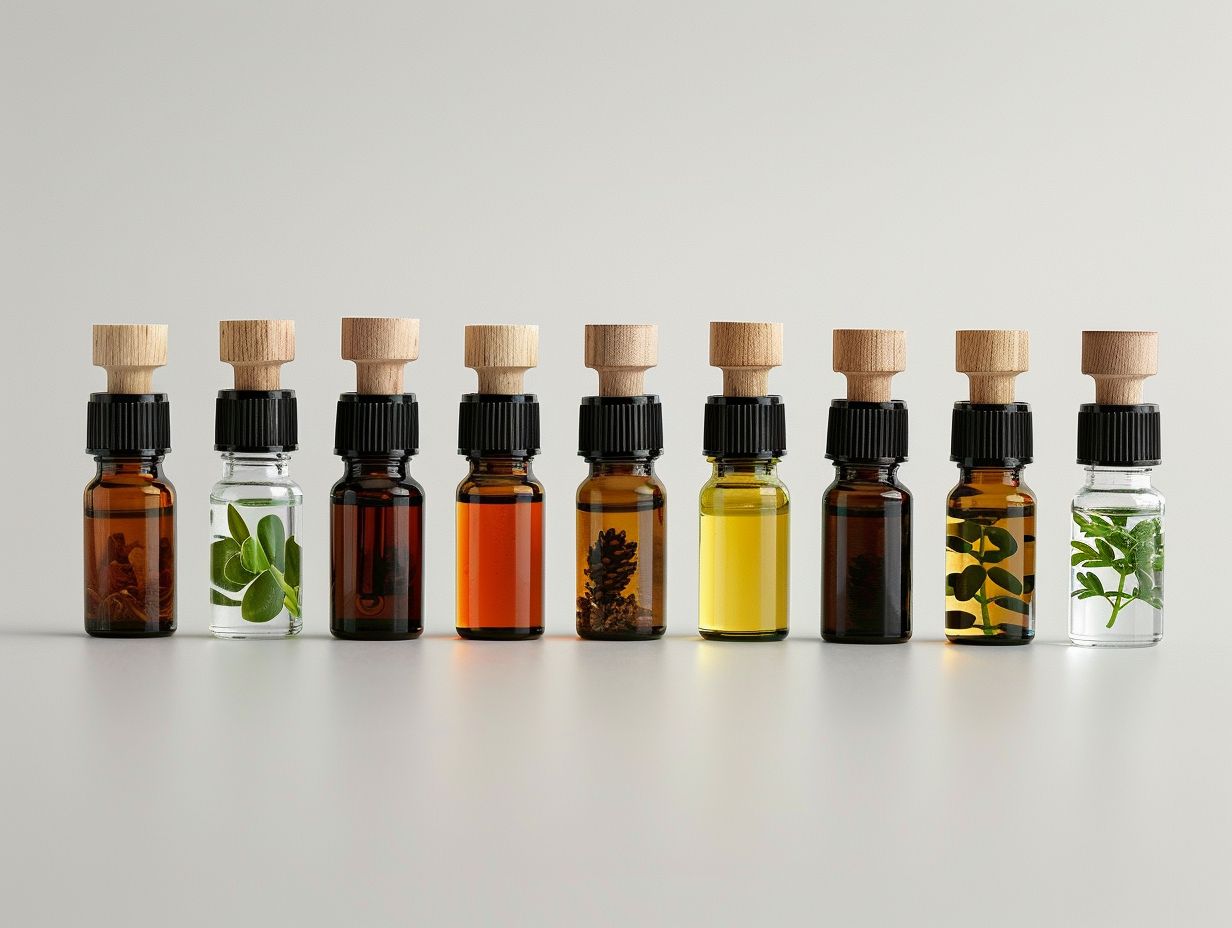
Essential oils penetrate the skin effectively when diluted with carrier oils, ensuring optimal absorption and delivery of their beneficial properties deep into the skin layers.
Carrier oils play a crucial role in blending with essential oils to create a balanced and safe application. These oils act as ‘carriers,’ helping to dilute the potent essential oils, making them milder and gentler on the skin. The combination of carrier oils with essential oils facilitates a smoother application process, preventing any potential skin irritation that may arise when using undiluted essential oils directly on the skin.
Carrier oils help in slowing down the evaporation rate of essential oils, allowing them to stay on the skin for a longer duration, thereby prolonging their therapeutic effects. This enhanced staying power ensures that the essential oils have ample time to work their magic on the skin, providing sustained benefits over an extended period.
Sealing in Moisture
Essential oils aid in sealing moisture into the skin by strengthening the skin’s barrier function, reducing transepidermal water loss, and promoting long-lasting hydration.
This process of enhancing the skin’s natural barrier integrity through the use of essential oils helps maintain optimal hydration levels, preventing dryness and flakiness. By forming a protective shield on the skin’s surface, these oils act as a barrier against pollutants, UV rays, and other environmental stressors that can lead to premature aging and damage. The combination of fatty acids and antioxidants present in essential oils further nourishes the skin, improving its overall health and appearance.
Stimulating Oil Production
Certain essential oils can stimulate oil production in the skin, which may benefit individuals with dry skin or those experiencing oil imbalances that lead to excessive dryness.
On the other hand, for individuals dealing with oily skin, certain essential oils like tea tree oil or lavender oil are known for their ability to regulate oil production. These oils have natural astringent properties that can help control excess sebum production, preventing clogged pores and minimizing shine.
By incorporating these oils into their skincare routine, individuals can achieve a healthy balance of natural oils on their skin. The antibacterial and anti-inflammatory properties of these essential oils can also help combat acne and soothe irritated skin, promoting overall skin health.
Which Essential Oils are Best for Moisturizing?
Several essential oils excel in moisturizing the skin, with popular choices including lavender oil, geranium oil, and carrier oils like jojoba, rosehip, and argan oil.
These oils are renowned for their ability to deeply hydrate and nourish the skin, making them excellent choices for various skincare routines. Lavender oil, with its soothing properties, helps to calm irritation and reduce redness, while geranium oil is known for balancing sebum production and promoting a healthy complexion.
Carrier oils like jojoba, rosehip, and argan oil are rich in essential fatty acids and antioxidants that protect the skin barrier and lock in moisture, leaving the skin soft and supple. Jojoba oil closely resembles the skin’s natural oils, making it an excellent moisturizer for all skin types.
Lavender Oil
Lavender oil is a versatile essential oil known for its soothing aroma, calming properties, and skin benefits, making it a popular choice for moisturizing and aromatherapy.
One of the specific benefits of lavender oil for skin health is its ability to calm irritated skin and reduce redness and inflammation, thanks to its anti-inflammatory and antioxidant properties. This essential oil is celebrated for promoting relaxation and reducing stress levels, which in turn can have a positive impact on skin health by decreasing the appearance of stress-related skin issues.
The skin-soothing properties of lavender oil can help in alleviating minor skin irritations such as bug bites, burns, and cuts. Its gentle nature makes it suitable for all skin types, including sensitive skin, providing a nourishing and hydrating solution.
By incorporating lavender oil into your skincare routine, you can not only improve the overall health of your skin but also enhance your well-being through its calming effects and therapeutic fragrance.
Jojoba Oil
Jojoba oil is a versatile carrier oil rich in fatty acids, vitamins, and minerals that closely resemble the skin’s natural oils, making it an excellent choice for moisturizing and balancing the skin.
This unique oil is structured similarly to the skin’s own sebum, allowing it to penetrate deeply into the skin without clogging pores. By mimicking the skin’s sebum, jojoba oil can help regulate oil production, making it beneficial for both dry and oily skin types. Its nourishing properties come from its high content of essential fatty acids, like omega-6 and omega-9, which provide hydration and promote a healthy skin barrier.
Rosehip Oil
Rosehip oil is a potent anti-aging essential oil rich in antioxidants, vitamins, and essential fatty acids that promote skin regeneration, reduce signs of aging, and improve overall skin texture and tone.
One of the key benefits of rosehip oil for mature skin is its exceptional antioxidant properties, which help combat free radicals and protect the skin from environmental damage and premature aging. These antioxidants, including vitamin C and vitamin E, also aid in brightening the skin and reducing hyperpigmentation.
Rosehip oil’s collagen-boosting effects play a crucial role in maintaining skin elasticity and firmness, making it an excellent choice for addressing sagging skin and fine lines. By stimulating collagen production, this oil helps plump up the skin and minimize the appearance of wrinkles.
Argan Oil
Argan oil is a nourishing essential oil rich in fatty acids and antioxidants that help repair the skin’s barrier, restore moisture balance, and promote a healthy complexion, especially for dry or damaged skin.
It is renowned for its exceptional ability to strengthen the skin’s natural defenses, enhancing its resistance to external stressors and pollutants, making it an effective ingredient in combating environmental damage. The high concentration of vitamin E in argan oil further aids in improving skin elasticity, reducing the appearance of fine lines and wrinkles, and providing a youthful glow. Regular use of argan oil can also soothe irritation, inflammation, and redness, offering soothing relief to sensitive or compromised skin.
Coconut Oil
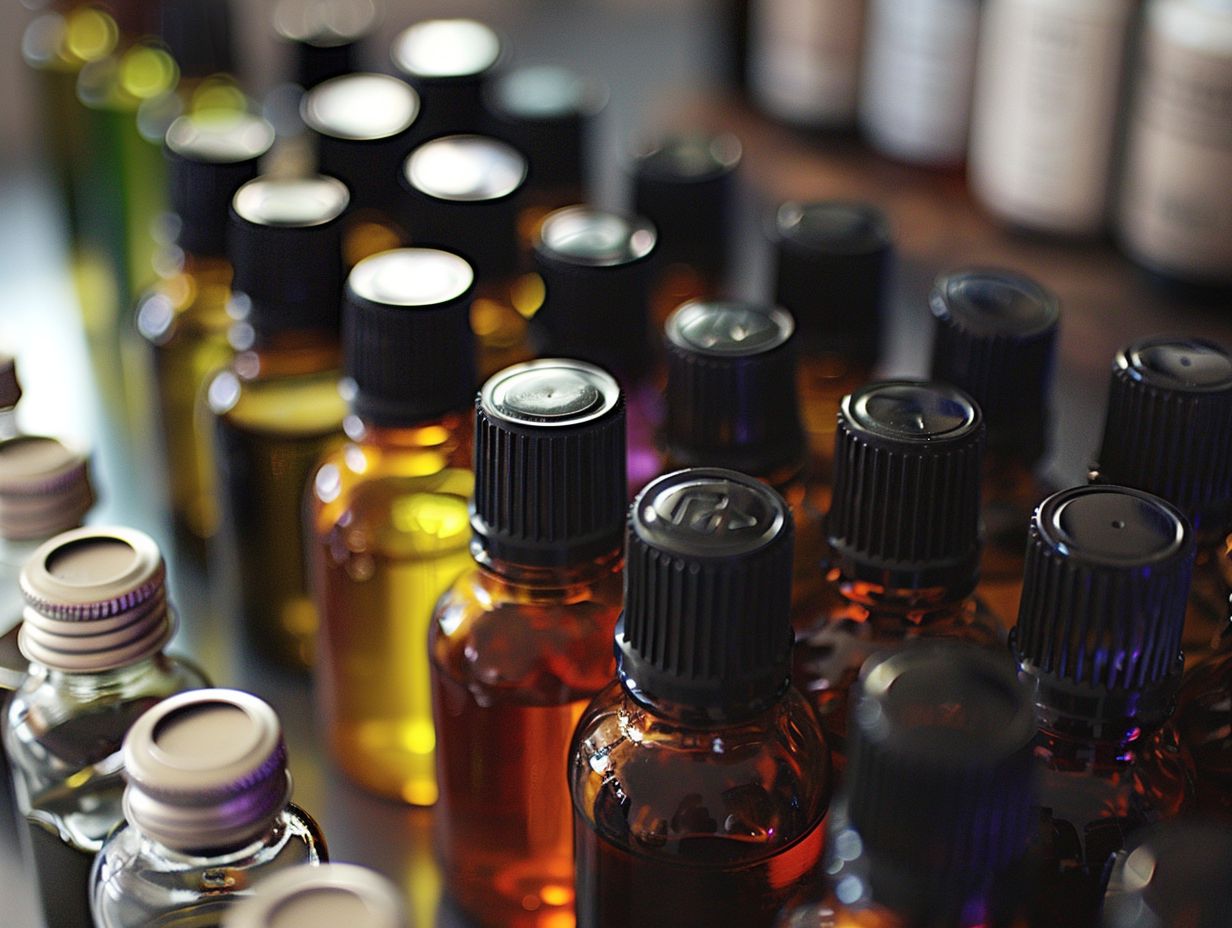
Its nourishing properties go beyond superficial hydration, as it penetrates deep into the skin layers, aiding in repairing the skin barrier and preventing transepidermal water loss.
The emollient effects of coconut oil make it ideal for softening rough patches and soothing irritated skin, offering relief for conditions like eczema or psoriasis.
Whether you have dry, oily, or combination skin, coconut oil can adapt to different skin types, balancing sebum production and enhancing overall skin health.
How to Use Essential Oils for Moisturizing?
Using essential oils for moisturizing involves diluting them with carrier oils, incorporating them into lotions or creams, and utilizing them as facial mists to maximize their hydrating benefits for the skin.
When diluting essential oils, it is crucial to follow the recommended guidelines to ensure safe use without causing skin irritation. The typical dilution ratio is around 1-2% essential oil to carrier oil, depending on the type of essential oil and skin sensitivity.
Carrier oils such as jojoba, almond, or coconut oil are commonly used to blend with essential oils to create effective moisturizing solutions for the skin. These carrier oils not only help in dilution but also provide additional nourishment and hydration.
Incorporating essential oils into homemade lotions or creams allows for a customized moisturizing experience tailored to individual skin needs. The oils can be added during the formulation process to enhance the hydrating properties of the product.
Diluting with Carrier Oils
Diluting essential oils with carrier oils is essential to ensure skin safety, prevent irritation, and enhance the moisturizing effects of essential oils without compromising their potency.
When using essential oils, it’s crucial to choose a suitable carrier oil that complements the properties of the essential oil. Popular carrier oils like jojoba oil, coconut oil, almond oil, and olive oil are known for their moisturizing benefits and skin-nourishing properties. The dilution ratios vary depending on the essential oil and intended use, but a general guideline is to dilute essential oils at a 2-3% concentration for topical application. This means adding approximately 12 drops of essential oil per ounce of carrier oil.
By diluting essential oils appropriately, you not only ensure safe application but also maximize the moisturizing benefits for your skin. This practice helps the skin absorb the oils more effectively, preventing any potential adverse reactions or sensitivities. Remember to perform a patch test before full application and always store diluted essential oil blends in dark, glass bottles to maintain their integrity.
Adding to Lotion or Cream
Incorporating essential oils into lotions or creams can enhance their moisturizing properties, improve texture, and provide a customizable skincare solution tailored to individual skin needs.
Essential oils not only add a delightful natural fragrance but also offer numerous benefits for the skin. Lavender oil, for instance, is renowned for its calming properties, making it ideal for sensitive or irritated skin. Tea tree oil possesses antibacterial and anti-inflammatory qualities, perfect for acne-prone skin. The versatility of essential oils allows you to mix and match to create a personalized blend that targets your unique skincare concerns.
Using as a Facial Mist
Utilizing essential oils as facial mists offers a refreshing and hydrating experience, delivering instant moisture, soothing properties, and skin-beneficial nutrients in a convenient and revitalizing form.
The cooling effects of these facial mists provide a rejuvenating sensation, perfect for refreshing your skin throughout the day. The hydrating benefits ensure that your skin stays moisturized and supple, combating dryness and enhancing your natural glow. The easy application of facial mists makes them ideal for on-the-go skincare routines – simply spritz and enjoy the instant boost of hydration without any hassle.
Are There Any Risks of Using Essential Oils for Moisturizing?
While essential oils offer numerous benefits for skin moisturizing, there are potential risks such as skin irritation, allergic reactions, photosensitivity, and interactions with medications that individuals should be aware of before using them.
When using essential oils for skin, it’s crucial to remember that these concentrated extracts can be potent and may cause skin sensitivities for some individuals. Patch testing is recommended before incorporating them into your skincare routine to check for any adverse reactions.
Certain essential oils, such as citrus oils like lemon or bergamot, can make the skin more sensitive to sunlight, leading to potential sunburns or pigmentation issues if not used cautiously. It’s advisable to apply them in the evenings or use sunscreen during the day.
If you are using prescription topical medications or treatments for skin conditions, it’s advisable to consult with a dermatologist before combining them with essential oils to avoid potential interactions that could affect the effectiveness of either product.
Skin Irritation
Skin irritation can occur when essential oils are used undiluted or in high concentrations, leading to redness, itching, or rashes, especially in individuals with sensitive skin or allergies.
It’s essential to dilute essential oils properly before applying them to the skin. This dilution helps reduce the risk of irritation or adverse reactions.
When using essential oils for topical application, a common guideline is to mix them with a carrier oil at a 2% concentration. This means adding approximately 12 drops of essential oil per ounce of carrier oil.
Conducting a patch test is crucial, especially for those with sensitive skin. Apply a small amount of the diluted essential oil mixture on a small area of skin to check for any adverse reactions before using it more extensively.
When choosing essential oils for sensitive skin, opt for gentle options like lavender, chamomile, or rose oil, known for their soothing properties.
Being cautious and informed about proper dilution and suitable oils can help minimize the risks of skin irritation and ensure a safe and enjoyable essential oil experience.
Allergic Reactions
Allergic reactions to essential oils may manifest as itching, hives, or swelling, particularly in individuals with known allergies to specific botanicals or compounds present in the oils.
These reactions occur due to the presence of allergenic compounds like limonene, linalool, and eugenol in essential oils, which can trigger an immune response in sensitive individuals.
Common symptoms of allergic reactions include redness, rash, or even respiratory issues in severe cases. It is crucial for those prone to allergies to conduct patch tests before using new oils and to dilute them properly to minimize the risk of adverse reactions.
Individuals with a history of skin sensitivities or allergies should consult a dermatologist or allergist before incorporating essential oils into their skincare routine.
Photosensitivity
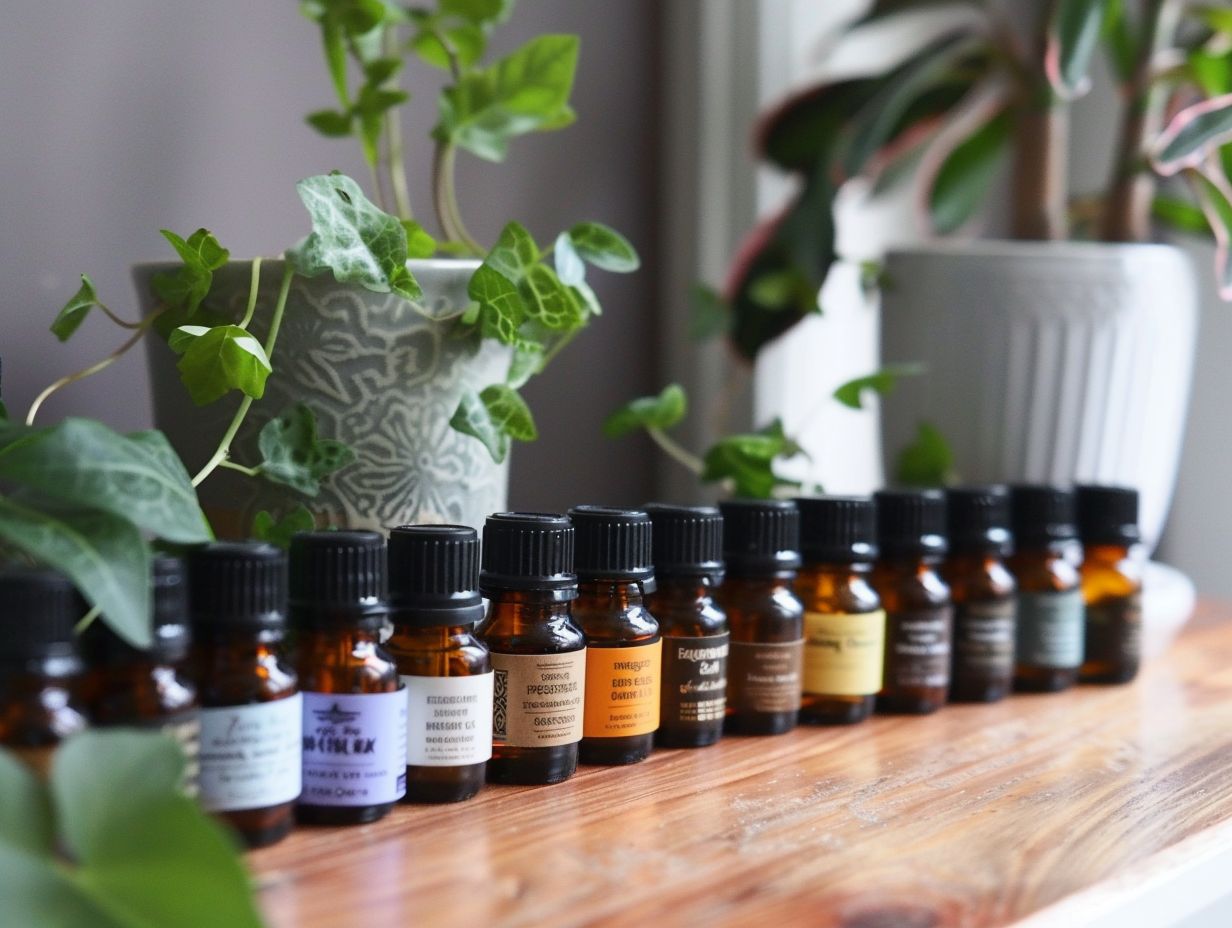
Photosensitivity caused by essential oils refers to the reaction of the skin when exposed to sunlight after the application of certain oils. These oils contain compounds that make the skin more prone to damage from UV rays, intensifying the risk of sunburn and pigmentation issues.
- Lemon oil, lime oil, bergamot oil, and grapefruit oil are well-known for their photosensitizing properties.
- To minimize the risk of sun damage, it is advisable to dilute these oils properly before applying them on the skin.
- It’s crucial to apply sunscreen with a high SPF value and wear protective clothing when using photosensitizing oils to safeguard against potential skin reactions.
Essential Oil Interactions
Interactions between essential oils and certain medications or skincare products can occur, potentially affecting skin health, treatment efficacy, or exacerbating existing skin conditions, emphasizing the importance of consulting healthcare professionals.
Many people turn to essential oils for their therapeutic benefits, often unaware of the risks of interactions with conventional medications or skincare treatments. Essential oils are highly concentrated plant extracts that can exert potent effects on the skin and body.
When used in conjunction with certain drugs or topical products, these oils can interfere with the intended effects, leading to unexpected outcomes. For individuals with sensitive skin or specific dermatological conditions, such as eczema or psoriasis, the wrong combination of essential oils and treatments could aggravate symptoms or trigger adverse reactions.
Frequently Asked Questions
Are Essential Oils Moisturizing?
Yes, essential oils can be moisturizing when used correctly. Many essential oils have natural hydrating properties that can help nourish and protect the skin.
Which Essential Oils are Moisturizing?
Some of the most moisturizing essential oils include rosehip, jojoba, argan, and almond oil. These oils are rich in fatty acids and other nutrients that can deeply hydrate the skin.
How can Essential Oils be Used for Moisturizing?
Essential oils can be used in a variety of ways for moisturizing. They can be added to lotions, creams, and serums, or used as a standalone moisturizer by mixing a few drops with a carrier oil such as coconut or olive oil.
Can Essential Oils Replace Traditional Moisturizers?
While essential oils can provide hydration, they should not be used as a replacement for traditional moisturizers. Essential oils are highly concentrated and can irritate the skin if used in large amounts. It is best to use them in conjunction with a moisturizer.
Are Essential Oils Safe for All Skin Types?
It is important to remember that everyone’s skin is different and may react differently to essential oils. Some oils may be too strong for sensitive skin, so it is always best to patch test before using them on larger areas of the skin.
Can Essential Oils Help with Dry Skin?
Yes, essential oils can be beneficial for dry skin as they can help lock in moisture and improve the skin’s overall hydration. Some essential oils, like lavender and frankincense, also have anti-inflammatory properties that can soothe dry and irritated skin.

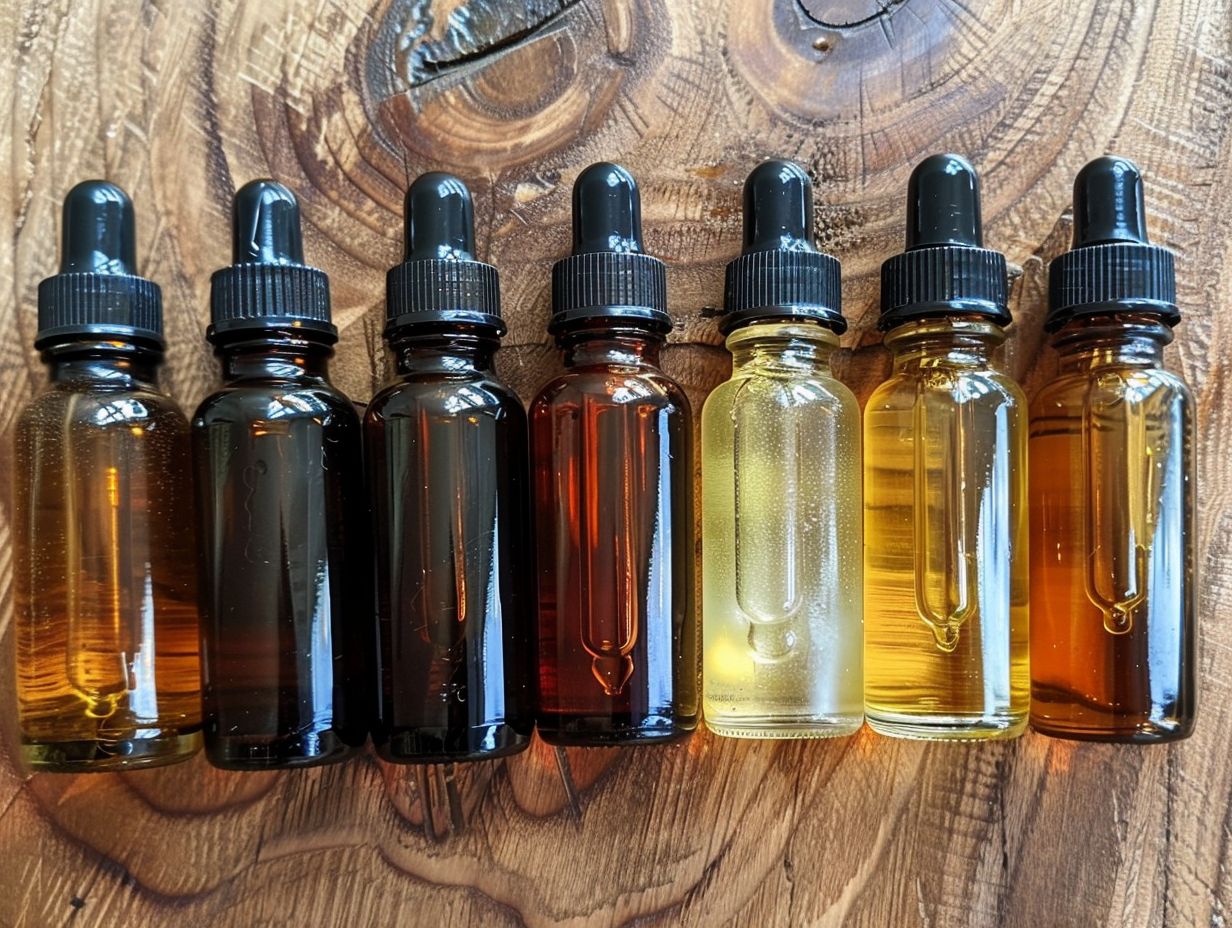

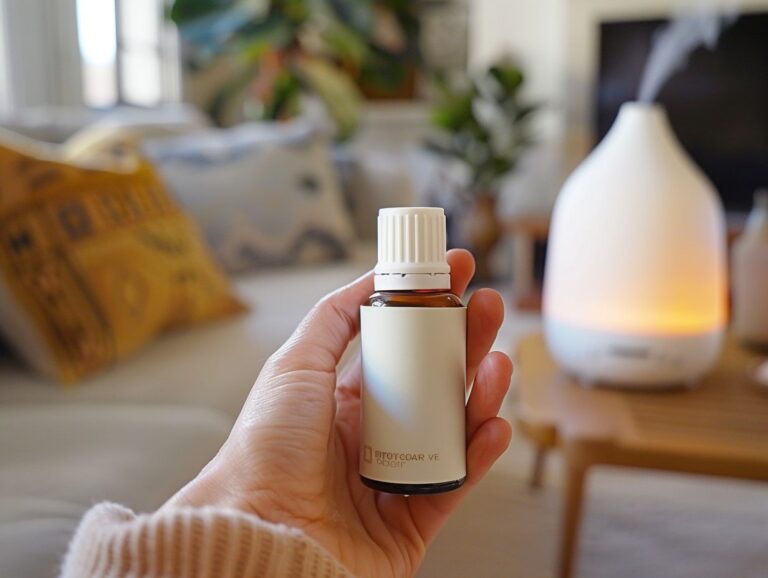




3 Comments